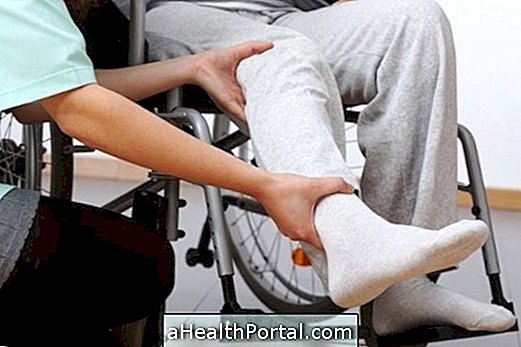Myasthenia gravis, or myasthenia gravis, is an autoimmune disease that causes progressive muscle weakness, being more common in women and usually begins in the 20s and 40s. Symptoms of myasthenia gravis may begin suddenly, but they usually come up and worsen slowly.
The causes of myasthenia gravis are related to a change in the immune system that causes antibodies to attack certain structural structures that are critical to muscle control. This disease does not have a definitive cure but the treatment can improve the quality of life of the individual.
Myasthenia gravis is not exactly the same as congenital myasthenia, which is usually diagnosed in childhood.
Symptoms of myasthenia gravis
The most common initial symptoms of myasthenia gravis are:
- Eyelid weakness and difficulty opening your eyes or blinking;
- Weakness of the eye muscles leading to strabismus and double vision and
- Excessive muscle fatigue after exercise or physical exertion.
As the disease progresses, the symptoms worsen and include:
- Weakness of the neck muscles that leave the head hanging forward or to the side;
- Difficulty climbing stairs, raising arms, writing;
- Difficulty talking and swallowing food;
- Weakness of the arms and legs, which varies in intensity over hours or days.
In severe episodes, patients may have a compromised respiratory muscle, a condition called myasthenic crisis, which is severe and can lead to death if not properly treated.
Symptoms may worsen when the individual performs some physical exertion, is exposed to heat, is under stress or anxiety, is ill or when taking tranquilizers or antibiotics.
Treatment for Myasthenia Gravis

The treatment for myasthenia gravis is the use of remedies that improve the efficiency of the receptors, allowing greater control of the muscles, and performing surgery to remove the thymus, which in some cases may improve the patient's quality of life.
Other remedies that can also be used are those that decrease the action of the immune system, but that leave the individual more prone to diseases and the use of steroids to strengthen the muscles. The names of the medicines that may be used in myasthenia gravis are: pyridostigmine, prednisone, azathioprine, cyclosporine, cyclophosphamide and human immunoglobulin.
Motor and respiratory physiotherapy are also indicated in the treatment of myasthenia gravis with the aim of strengthening muscles, improving range of motion, breathing and preventing respiratory infections.



















